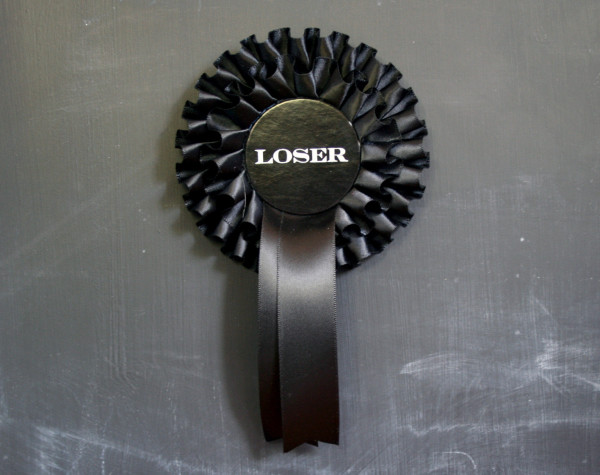
There are too many losers on Melbourne Cup Day for my liking. Loser rosette by Dear Colleen, via Etsy.


